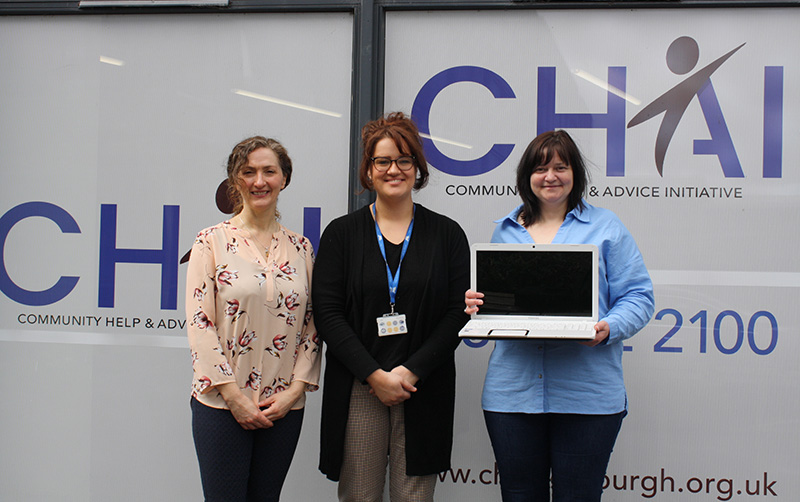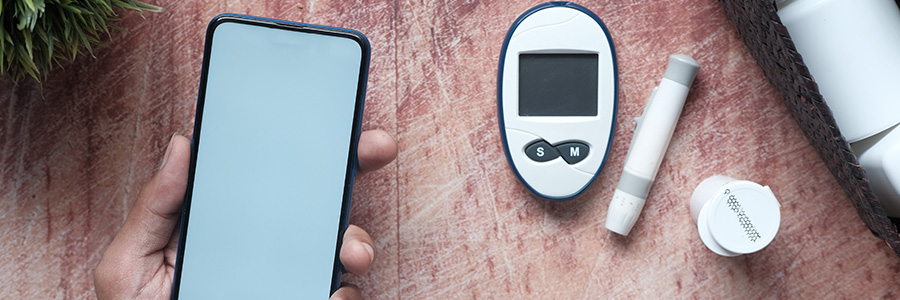Our Reconnect service provided a young person with a laptop that proved crucial in supporting them with their diabetes diagnosis.
Being diagnosed with type 1 diabetes can be a difficult life change; from monitoring blood sugar levels and using insulin, to staying aware of what you consume. For a child with an active social life, this can be tough and can often lead to difficulties living with this change in their life.
Thanks to advances in digital technology, managing blood sugar levels and keeping up with insulin intake has come leaps and bounds from the past, with modern devices and apps giving those affected a new tool to tackle their condition.
However due to a lack of funding, many NHS nurses face a struggle in providing these modern alternatives as they cannot also provide devices such as laptops and phones which are needed to complement the new technology. The current socio-economic landscape means that many people affected by digital poverty may not have access to these devices. The social work system cannot guarantee access to these devices, putting those affected by type 1 diabetes at further risk.
The reality of the situation
Through the NHS all under 18s are entitled to an insulin pump to help manage their diabetes, but due the requirement of having a device and internet connection to use the pump, some young people miss out on this opportunity. The device is needed to upload the data from the pump, which nurses can then access remotely.
Without the pump, the amount of insulin needed for an injection must be calculated manually, which can be a challenge for those who have additional learning needs and can cause anxiety, especially for those supporting a younger person. If a young person does have access to a device and digital diabetes technology, teachers and support assistants can help with the monitoring process, where they would not have been able to assist previously with injections.
There are other alternatives such as the Flash Glucose Libra Arm Sensor, however it requires a modern smartphone to be used, rendering this option obsolete for both those experiencing digital poverty as well as young children without their own device.
Collaborating with CHAI
CHAI reached out us and made us aware of a case involving a young person who is currently impacted by type 1 diabetes and living in poverty with no access to digital devices. As a result, she was struggling with insulin injections and keeping on top of blood sugar levels.
At the time our Reconnect service had a surplus laptop that was above the specifications needed, which we were delighted to provide. The young person has since been able to be fitted with an insulin pump, allowing her to live her life without the stress and anxiety that can come with tracking blood sugar and injections. Without access to this laptop, her independence and access to things she enjoyed would have been stripped away due to her diagnosis.

What's to come
Digital exclusion can have a significant impact on those living with diabetes. The absence of digital technology can amount to a great deal of stress and difficulty, limiting options and reducing access to advances in healthcare.
This is why we believe digital and connectivity should be recognised as basic utilities, accessible for everyone, to ensure that all are on the same playing field when it comes to health. As it stands these modern interventions are only available for those who can afford devices, digital skills and connectivity, leading to the poverty gap widening and the health of those impacted declining.
Our Reconnect service aims to increase digital inclusion for adults and families, providing digital devices, skills and connectivity to improve wellbeing. We were delighted to work with CHAI on this as they continue to raise awareness about the need for devices for people living with diabetes.

